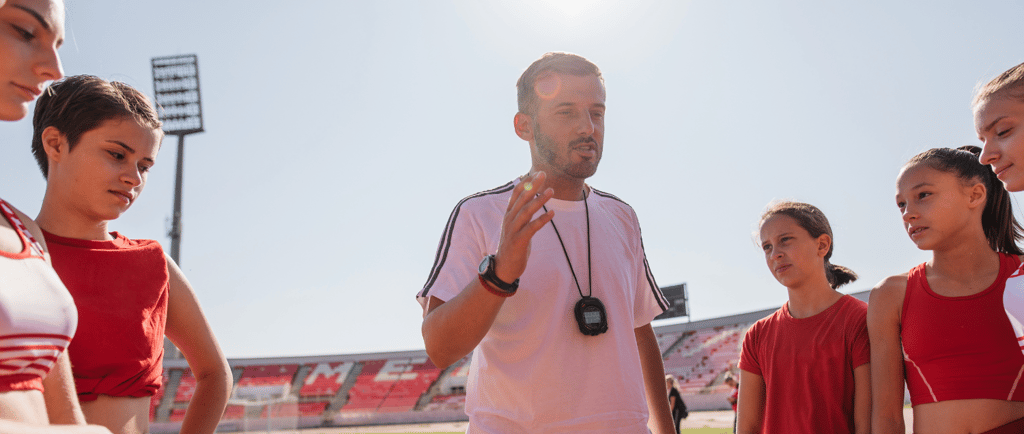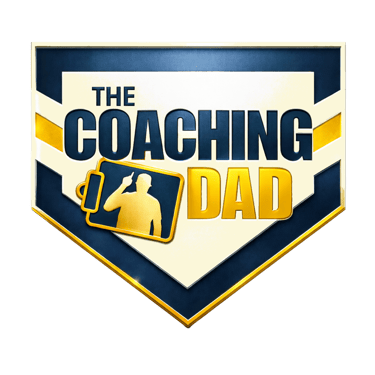Setting a Skill Development Foundation
As a youth-coach, you're helping to shape the long term development of athletes.
8/8/20243 min read


Youth athletics play a pivotal role in the overall development of children. Beyond the obvious physical benefits, sports also provide a robust foundation for skill development that extends into various aspects of life. As a parent-coach, your guidance is instrumental in fostering these skills, whether you are experienced or new to coaching. Here’s how youth athletics help build a strong foundation of skill development and some tips to enhance this process.
The Importance of Skill Development in Youth Sports
Skill development in youth sports is not just about creating better athletes; it’s about equipping children with essential life skills. According to the Aspen Institute’s Project Play, participation in sports helps children develop critical thinking, teamwork, and resilience . These skills are crucial for success both on and off the field.
Key Areas of Skill Development
Physical Skills
Youth sports are a fantastic way to improve physical fitness and motor skills. Regular participation in sports enhances coordination, balance, strength, and agility.
Fundamental Motor Skills: Sports activities improve fundamental motor skills such as running, jumping, throwing, and catching. These skills are the building blocks for more complex athletic abilities.
Fitness and Health: Engaging in sports promotes overall fitness and a healthy lifestyle. The Centers for Disease Control and Prevention (CDC) emphasizes that regular physical activity in children helps prevent obesity and related health issues .
Cognitive Skills
Sports require quick thinking, strategic planning, and decision-making, all of which contribute to cognitive development.
Problem-Solving: Playing sports involves constant problem-solving. For instance, a soccer player must decide the best way to pass the ball while avoiding defenders.
Focus and Concentration: Competitive sports improve focus and concentration as athletes need to stay attentive to the game dynamics.
Social Skills
Being part of a team helps children develop essential social skills, such as communication, cooperation, and empathy.
Teamwork: Team sports teach children how to work together towards a common goal, understand their roles, and support their teammates.
Conflict Resolution: Learning to navigate conflicts with teammates or opponents promotes effective communication and conflict resolution skills.
Emotional Skills
Sports provide a platform for children to learn about managing emotions, dealing with pressure, and building resilience.
Handling Pressure: Participation in sports helps children learn to handle pressure and perform under stress, which is beneficial in many life situations.
Building Resilience: Sports teach children to bounce back from setbacks and persevere through challenges, fostering a growth mindset.
Tips for Parent-Coaches to Enhance Skill Development
Focus on Fundamentals
Emphasize the importance of mastering fundamental skills before moving on to more advanced techniques. This creates a solid foundation for further development.
Drills and Repetition: Incorporate drills that focus on fundamental skills and encourage repetition to build muscle memory.
Progression: Gradually increase the complexity of drills as players become more comfortable with basic skills.
Create a Positive Learning Environment
A supportive and positive environment encourages children to take risks and try new things without fear of failure.
Positive Reinforcement: Use positive reinforcement to motivate players. Praise their efforts and improvements rather than just their successes.
Encourage Mistakes: Teach players that mistakes are part of the learning process. Encourage them to learn from their errors and keep trying.
Incorporate Fun and Variety
Keeping practices fun and varied helps maintain players’ interest and engagement, which is crucial for consistent skill development.
Games and Challenges: Use games and challenges to make learning new skills enjoyable. This keeps children motivated and eager to practice.
Varied Drills: Incorporate a variety of drills and activities to cover different aspects of the game and keep practices interesting.
Set Realistic Goals
Help players set realistic and achievable goals that focus on skill development rather than just winning games.
SMART Goals: Encourage players to set SMART (Specific, Measurable, Achievable, Relevant, Time-bound) goals to track their progress and stay motivated.
Regular Assessments: Conduct regular assessments to monitor progress and adjust goals as needed.
Promote Teamwork and Communication
Foster an environment where teamwork and communication are valued. This not only improves social skills but also enhances overall team performance.
Team Activities: Organize team-building activities that promote trust and cooperation among players.
Communication Drills: Incorporate drills that require players to communicate effectively, such as passing games or strategy discussions.
Further Research and Insights
Research underscores the significant benefits of skill development through youth sports. According to a report by the President’s Council on Sports, Fitness & Nutrition, participation in sports is associated with improved academic performance, better mental health, and enhanced social skills . Moreover, a study published in the Journal of Physical Activity and Health found that children who participate in sports are more likely to develop lifelong physical activity habits .
Conclusion
Youth athletics provide an invaluable platform for children to develop a wide range of skills that extend far beyond the playing field. By focusing on fundamentals, creating a positive learning environment, incorporating fun and variety, setting realistic goals, and promoting teamwork, parent-coaches can significantly enhance their young athletes' skill development. These efforts not only contribute to better athletic performance but also equip children with the tools they need to succeed in life. With these strategies, you can help build a strong foundation of skill development in your young athletes, setting them up for a lifetime of success and enjoyment in sports

